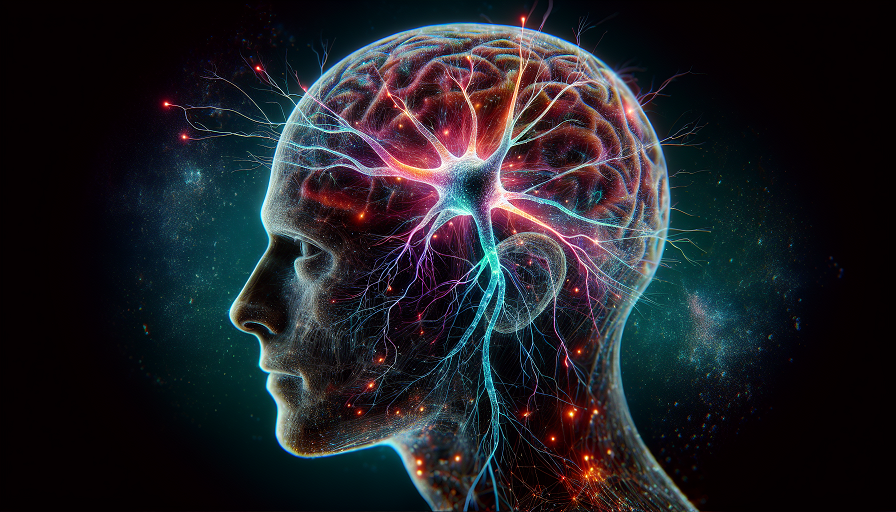
Listening to a new song that instantly feels familiar is a fascinating experience. It’s as if the song tugs on a memory you never knew you had. This intriguing phenomenon goes beyond just enjoying a melody. It involves a complex interplay of musical creativity, memory, and emotions. Here we look into why some songs instantly connect with your emotions, making them feel like an old friend you’ve just met.
Contents
The Magic of Musical Creativity
Musical creativity is the ability to combine sounds, rhythms, and harmonies in innovative ways. This creativity can strike a chord in us due to a few key elements in music:
- Melody: The sequence of notes that are most memorable. A catchy melody can resonate with listeners and feel familiar because it often follows certain patterns we’ve already experienced in other songs.
- Harmony: The combination of different musical notes played or sung together. Harmony adds depth and texture to a song, creating a sense of fullness that many find comforting.
- Rhythm: The timing of the beats in music. It makes us tap our feet or sway along, and certain rhythmic patterns are repeated across various songs, contributing to their familiarity.
These elements mix to create a song that’s both fresh and strangely reminiscent, triggering emotional responses that are sometimes unexpected.
The Link Between Memory and Music
Our brains have a remarkable ability to process and store musical patterns. This skill links closely to memory, especially emotional memory, which is why songs can feel nostalgic even if we technically hear them for the first time.
How Memory Works With Music
Our memories are not just static repositories. They are dynamic and are often influenced by our emotions and experiences. Here’s how memory interacts with music:
- Association: Our brains connect music with emotions or situations we’ve experienced. If a new song has elements similar to an old favorite, it may evoke the same feelings.
- Pattern Recognition: The brain loves recognizing patterns, and music is filled with repetitive patterns. Familiar beats, chords, or melodies can make a new song feel like a homecoming.
- Emotional Resonance: Music often reflects universal themes of love, loss, and joy, tapping into emotional memories that many share.
By engaging these aspects of memory, music creates a pathway to nostalgia without clear consciousness.
The Science Behind Nostalgia in Music
Nostalgia isn’t just a fuzzy feeling—it’s a psychological phenomenon that can be scientifically explained.
The Brain’s Response
When we listen to music, several areas of the brain light up, including those responsible for emotions, memory, and reward. Here’s a breakdown of what’s happening:
- Emotional Centers: The limbic system, particularly the amygdala and hippocampus, processes emotions and stores memories. They work together to attach feelings to musical memories.
- Auditory Cortex: This part of the brain is responsible for processing sounds. It identifies patterns, which can explain why certain sequences feel familiar or pleasing.
- Reward System: Listening to music can release dopamine, the “feel good” neurotransmitter, which contributes to our enjoyment and the pleasant feelings associated with nostalgia.
As these brain regions work together, they create a cocktail of emotions and memories, making us feel nostalgic.
Cultural and Personal Influences
While the structure of music and brain chemistry play critical roles, culture and individual experiences color how we perceive new music.
Many songs reflect cultural themes or periods. For instance, certain chord progressions might remind one of specific genres like rock from the 70s or pop from the 90s. This cultural memory can trigger nostalgia.
- Media Influence: Movies and shows often use music to anchor time, place, and mood, affecting how we perceive it in the future.
- Generational Trends: Music styles popular in your family or during your childhood can create lifelong emotional residues.
Personal Life Soundtracks
The concept of a personal soundtrack is powerful. The songs played during pivotal life moments—whether a first date, a wedding, or a road trip—form personal connections to certain sounds and styles. A new song that echoes these qualities might evoke a similar sense of nostalgia.
Enhancing Memory and Creativity with Brain Supplements
With the natural interplay between music, memory, and creativity, some individuals are exploring additional ways to enhance these experiences. Brain supplements, also known as nootropics, are gaining popularity for potentially supporting cognitive functions such as memory, creativity, and overall brain health.
The Role of Brain Supplements
Brain supplements may contain ingredients like omega-3 fatty acids, B vitamins, ginkgo biloba, and antioxidants. These components are believed to support brain function in several ways:
- Improved Blood Flow: Certain supplements, like ginkgo biloba, may help improve blood flow to the brain, enhancing cognitive functions and potentially making music a more immersive experience.
- Neurotransmitter Support: Ingredients such as B vitamins play a crucial role in the production of neurotransmitters, chemicals that transmit signals in the brain. This may enhance mood and cognitive performance, allowing deeper emotional and creative engagement with music.
- Antioxidant Support: Compounds like antioxidants help protect the brain from oxidative stress, which can support memory retention and cognitive longevity.
Potential Benefits for Music Enthusiasts
For music lovers, the potential benefits of brain supplements can enhance the musical experience:
- Enhanced Focus and Concentration With better focus, individuals might find themselves more engaged during musical activities, whether it’s learning a new instrument or identifying intricate details in a piece of music.
- Boosted Recall and Recognition Improved memory can make it easier to learn and recall new melodies and lyrics, making each listening experience richer.
- Creative Synergy Enhanced cognitive function can lead to greater creativity, allowing musicians and composers to explore new musical ideas and innovate within their art form.
Why New Songs Feel Nostalgic
Combining these elements, new songs might resonate and feel nostalgic due to:
- Musical Familiarity: Shared elements and structures with old favorites.
- Emotional Triggers: Evoking memories through emotion-driven brain pathways.
- Cultural or Personal Ties: Reminding us of collective cultural memories or personal life events.
This blend of musical creativity, the structure of our memories, and the cultural context we carry with us makes the music timeless, creating an endless loop where the new becomes old and yet remains evergreen.
There’s something magical about experiencing a new song that feels like an old favorite. It shows that music is more than just entertainment—it’s a profound connection to our past, a celebration of shared humanity, and a reminder of the beautiful complexities of our minds and memories.

